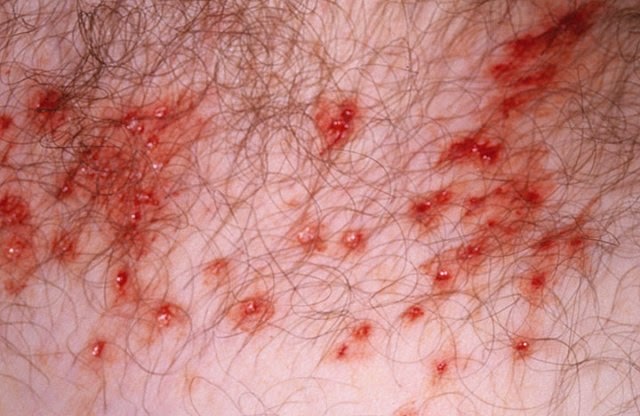Genital Herpes – A Sneek Peek
Herpes infection is transmitted by the entry of simplex virus strands of type 1 and 2. It spreads via contact requiring one to practice safety measures when living with an infected partner. Once it finds an entry into the system, it rapidly spreads to the skin, mucous membranes, rectum and oral regions making it very painful for the sufferer. Pregnant women infected with this virus may inadvertently spread it to the infant during the vaginal delivery. Once it is transmitted to the infants, the complications like viremia, herpetic meningitis, etc may be observed. This requires long-term medical attention.
Identify your Symptoms
The appearance of red rashes accompanied with fluid-filled blisters in and around the genital areas, rectum, and mouth. After the virus enters the system, within a week, the blisters start appearing. The painful blisters which come in clusters may seem to be healing on their own. Sometimes there may be fever associated along with blister appearance. Ascertain the infection is caused due to herpes virus a blood test is prescribed by your doctor.
How Does it spread?
This virus is able to access the nervous system of your body upon finding the entry into it. This type of viruses is named neurotropic. This characteristic helps them mask themselves in nerve cells during the antiviral dosage period making them dormant only to be activated sooner. The person suffering from this phase of genital herpes where the nerve cell is harboring the virus makes the person, a carrier to the infection. Although technically the person is not suffering from this disease but is a carrier of this disease. The virus is easily transmitted during sexual contact when the carrier is in the asymptotic phase.
During the reactivation phase, the virus spreads to the skin tissues from the nerve cells and hence, to all the other local regions in the body.
Treatment Methods – What to expect
You will be prescribed antiviral drugs to fight the infection and provide relief from painful symptoms. Depending on the appearance of sores and how fast they heal the drugs may be prescribed from anywhere between 7 to 10 days. Recurrent flare-ups may prompt your doctor to give you a prolonged dose of antivirals to suppress the virus continuously. Alternately you may be advised to take antiviral only when an active flare-up is observed. Some of the common drugs prescribed by the doctor include Zovirax, Famvir, Valtrex, etc.
Tags : Infertility Treatment In Bangalore Infertility Treatment In Malaysia Infertility Treatment In Mumbai Infertility Treatment In Hyderabad Infertility Treatment In Pune Treatment for venereal Diseases Treatment for Erectile Dysfunction Treatment for Premature Ejaculation Treatment for Female Infertility Treatment for Male Infertility Treatment for Penile Enhancement Treatment for Genital Herpes
Originally posted 2021-09-29 12:03:47.





